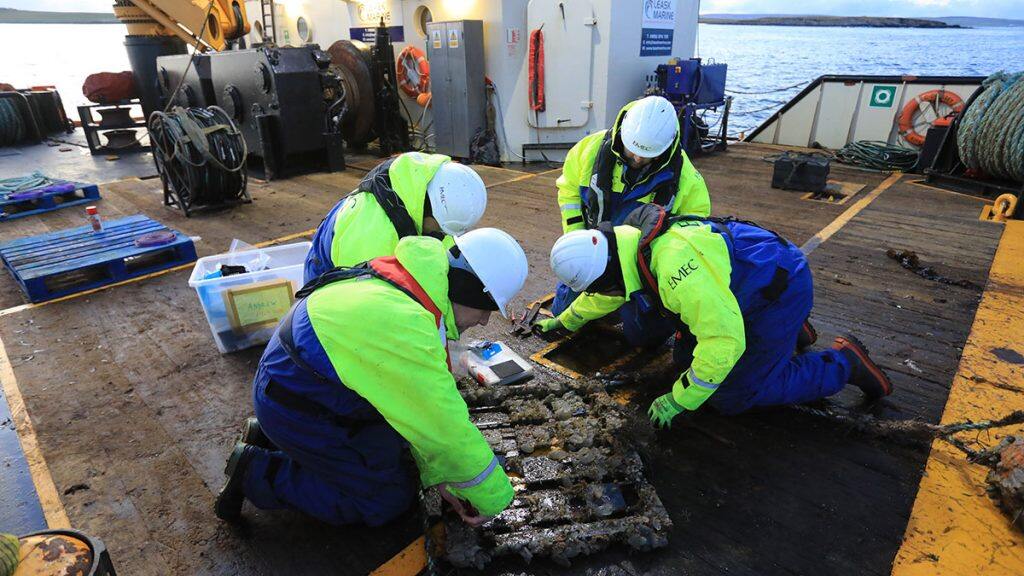

From the moment an offshore energy platform, such as a wind turbine, is placed into the open water, chemical processes begin leading to the settlement and growth of marine organisms.
This process, known as biofouling, affects device performance and is extremely costly for companies in terms of maintenance, mitigation and in energy capture.
But a team from Heriot-Watt University’s International Centre for Island Technology (ICIT) based in Orkney, is part of a two year project funded by OCEAN ERA-NET, to develop new anti-fouling strategies.
“Ultimately, we hope to provide evidence-based guidance to help the marine renewable energy industry in our societal aim to decarbonise electricity generation in an environmentally responsible way.”
–Dr Andrew Want
The Wave and Energy Project (WEP+) aims to maximise energy capture whilst minimising down-time of marine renewable energy (MRE) platforms. Dr Andrew Want and Dr Jo Porter are testing new anti-fouling and anti-corrosion treatments to determine which coatings can be applied to a structure in order to best deter organisms, such as limpets and barnacles, for a prolonged period of time.
Dr Andrew Want, a marine ecologist at the ICIT, explains: “The WEP+ project provides a valuable opportunity to study biofouling and test antifouling coatings. Biofouling varies between locations; strategies to best mitigate this problem may be improved with relevant knowledge of local species. There are deployments happening in habitats that we haven’t really studied so we don’t have a complete picture of what biofouling will occur. So we need to work out what coatings will work most effectively in these high wave or high flow habitats
“Ultimately, we hope to provide evidence-based guidance to help the marine renewable energy industry in our societal aim to decarbonise electricity generation in an environmentally responsible way.”
Biofouling leads to reduced efficiency and reliability of MRE platforms. The researchers are working with a specialist offshore wind and wave testing facility in the Canary Islands in order to enhance their understanding of biofouling in these waters.
Dr Jo Porter, a marine scientist at Heriot-Watt’s ICIT, added: “It is important to understand the environmental impact that putting new infrastructure into the water may have. It may act as a stepping stone for the arrival of invasive non-native species.
“Part of our research work is to analyse what grows on our settlement panels to check for the arrival of such species into local waters. It is important to identify these possible impacts at as early a stage as possible, so that appropriate surveillance and cleaning protocols of future devices can be factored into maintenance schedules to avoid build-up of unwanted and/or nuisance growth.”
The WEP+ project involves partners from the UK and Spain representing industry, academia and the marine energy sector. They include project leaders Aquatera Ltd., Heriot-Watt University’s International Centre for Island Technology, Las Universidades de la Laguna (ULL) and las Palmas de Gran Canaria (ULPGC).
Natalia Rojas, Project Manager at Aquatera, said: “This research is the first one of its category done for the MRE and offshore wind industries in the Canary Islands. The collaboration between the Scottish industry and academia, with large expertise in MRE and offshore wind, with the local academia in the Canaries has been extremely positive to support the development of these sectors in the archipelago.”
WEP+ is scheduled to complete this September.







































